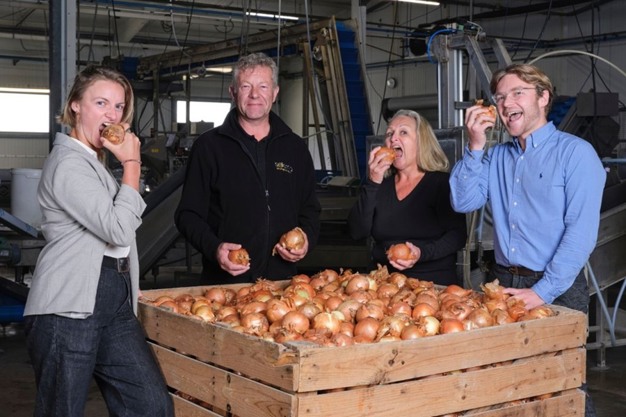Olivier Magaud, director of Solema, describes a two-speed allium market. On the one hand, the fresh market is experiencing difficulties, and on the other, the needs of the processing sector are constantly increasing. "In the first range, the situation remains rather gloomy. Sales are average, which has a direct impact on prices, which are stable but not excessive. Producers will have a decent year but without any real performance. Generally speaking, the fresh market has been in decline since the pandemic. In contrast, the processing sector is showing strong momentum. Demand is rising steadily, driven by a growing number of clients with ever-higher demands for quality and competitive prices."
 © Solema Production capacity from 300 kg/day to 30 tons/day in 30 years
© Solema Production capacity from 300 kg/day to 30 tons/day in 30 years
This positive situation has prompted the Solema family business, which specializes in allium processing, to increase its production capacity. "We have invested in new machinery to reach a potential of 30 tons/day. We peel yellow onions, red onions, and shallots, as well as carrots and white cabbage, which we can also mince." This is a major step forward from the company's beginnings in 1986, when it was one of the first to specialize in onion peeling, processing 300kg/day. This increase in production capacity will partially offset the drop in sales that producers are experiencing on the fresh market. "We offer our range in big bags. This limits labor and packaging costs, so we can get more out of our farmers' produce."
A desire to combat food waste...
If the processing sector is booming, it is partly thanks to a desire to limit food waste. "After the Covid pandemic, there was a lot of talk about food waste. Young people in particular have turned to processed products, which are certainly more practical, but also help prevent waste. Buying a portion of sauerkraut rather than a bag of onions, cabbage and potatoes saves time and avoids waste."
... that creates packaging waste!
However, this desire to turn to processed products contrasts with the desire to limit packaging. "The processing sector is coming up against another trend, which is to combat the excess of trash resulting from buying 200g of packaging for 100g of product. As a result, the catering section in stores is growing in popularity, as it responds well to this desire to buy in portions while limiting packaging. However, this service comes at a price, especially in the current economic context, where the search for the best price is often the order of the day. The situation is complicated because we are currently operating in a market full of contradictions, where the professionals of the sector no longer know where they stand."
For more information: © Solema Olivier Magaud
© Solema Olivier Magaud
Solema-Luzo
Chemin des Chènevières
10260 Jully-sur-Sarce
France
Phone: +33 3 25 29 85 79
luzo@luzo.fr
solema.com
